There is a good chance that this post contains affiliate links. If you make a purchase through them, I may receive a small commission at no extra cost to you! As an Amazon Associate, I earn from qualifying purchases. As ever, all opinions are my own.
If you’ve arrived here, chances are you’re considering moving to London. However, you’ve probably heard the rumours that the cost of living in London is very high.
Despite what you may have heard, though, it is possible to live in London without being a zillionaire!
I moved to London back in September 2019, and I really struggled to work out how much living in London would cost me before I got here. For this reason, now that I have been living in London for 4 years, I have put together this guide to how much living in London really costs.
This is your no-BS, completely honest guide to the cost of living in London per month.
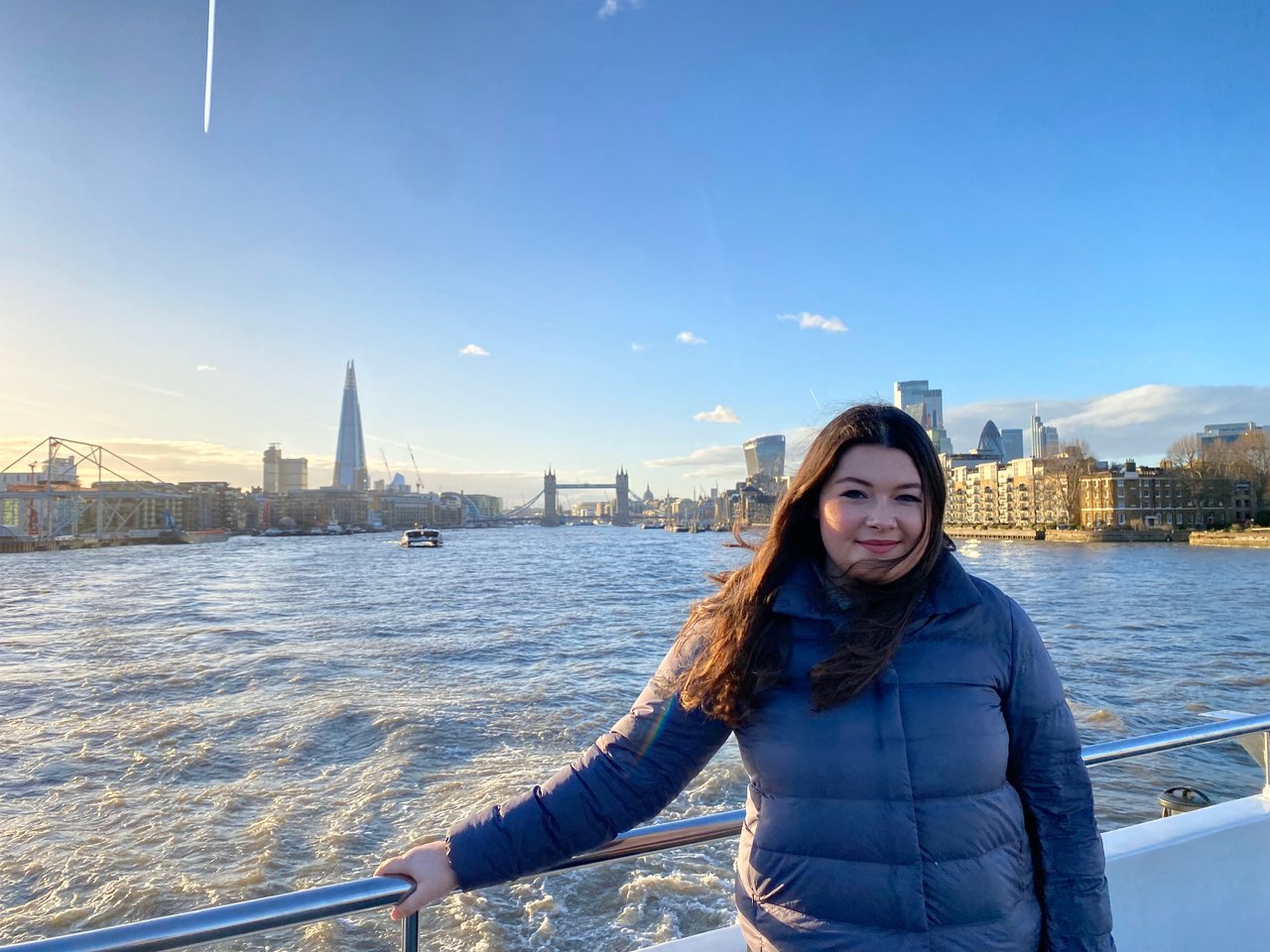
I’ll include the average cost of everything from accommodation to activities, and stick around until the end, because I’ll also let you know how much money you need to earn in London, and how people afford to live in London on low salaries.
Table of Contents
What is the Average Cost of Living in London per Month?
Based off my own experience and those of the people I know, as well as data from all corners of the internet, the average living cost in London per month with rent is around £1,600-£2,500 per month.
This figure includes the price of rent, which is why there’s such a wide range here.
It’s sad, but the cost of living in London for a couple is always lower than the cost of living in London for a single person living alone. That’s because you can split the cost of bills!
In this post, I’ve crunched the numbers on the cost of housing, utility bills, food and activities in London so that you can work out a more precise monthly budget for yourself.
With that said, I don’t want to sugar coat how expensive the cost of living in London is. The cost of living in London compared to the rest of the UK is very high. I have lived in terrible, freezing, falling-apart houses, and unless you have no other choice, that’s no way to live just to save a couple of £££.
So this post is more “how much money you need to live comfortably in London” rather than just getting by.
Housing Costs in London
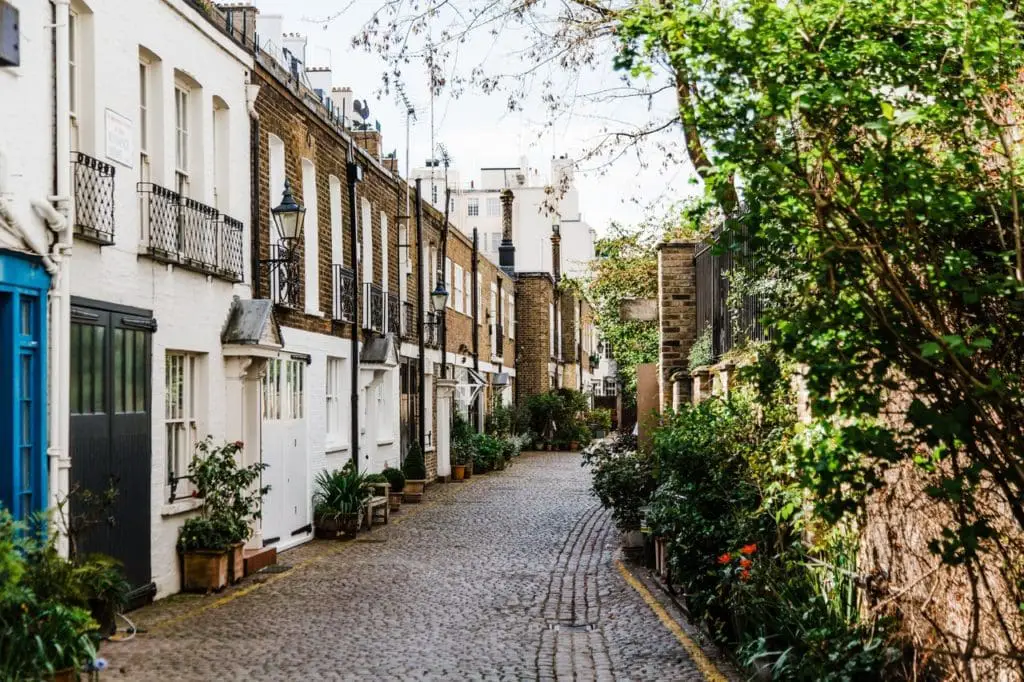
Your accommodation will undoubtedly be your biggest monthly expense when living in London.
Unless you’re rich, you’ll be renting, rather than buying, when you arrive in London.
There are many factors to consider when working out how much you’ll need to spend on rent every month in London, but the two main factors are:
- Which zone you live in; and
- Whether you share your flat with others or not.
Which Zone Can I Afford to Live In?
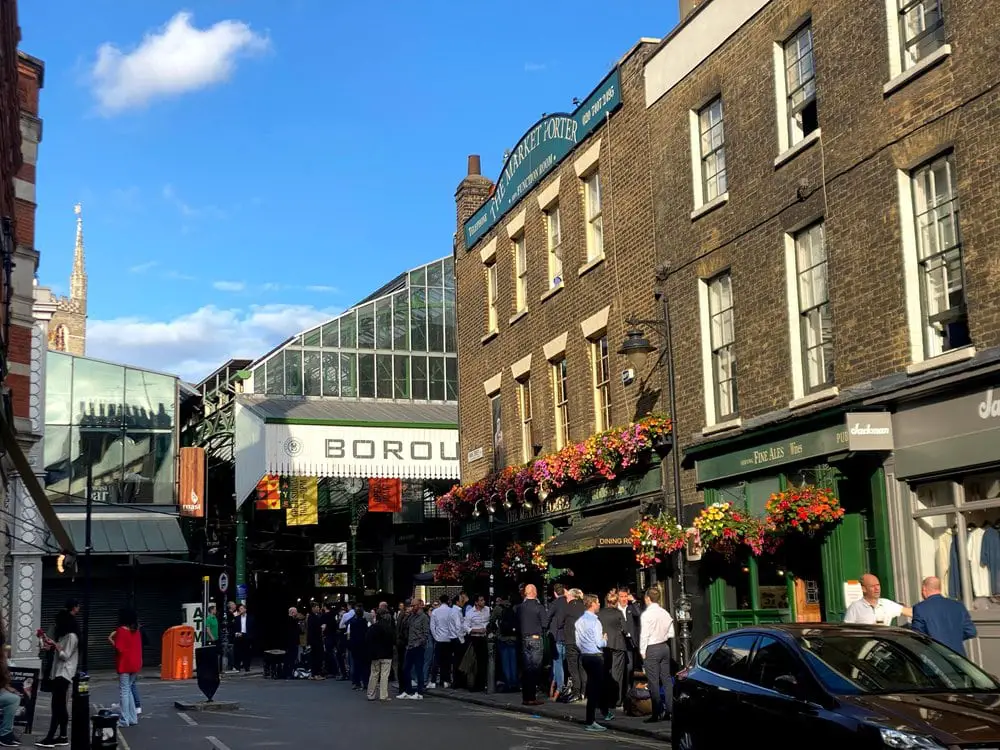
London is split into zones for public transport, but the zones are also used to describe how close you live to the city centre.
For example, Zone 1 is central London and the best place to live to be close to all the action. Then it goes Zone 2, 3, 4, etc… The zones go all the way to zone 9, but by that point you’re absolutely not in London any more!
If you want to actually live in London, and experience all it has to offer, you should find a place in either Zones 1, 2 or 3.
Zone 1 is where you’ll find popular tourist areas like Soho and Covent Garden, some of the most sought-after areas in London. Zone 2 includes “cooler” neighbourhoods like Shoreditch and Clapham.
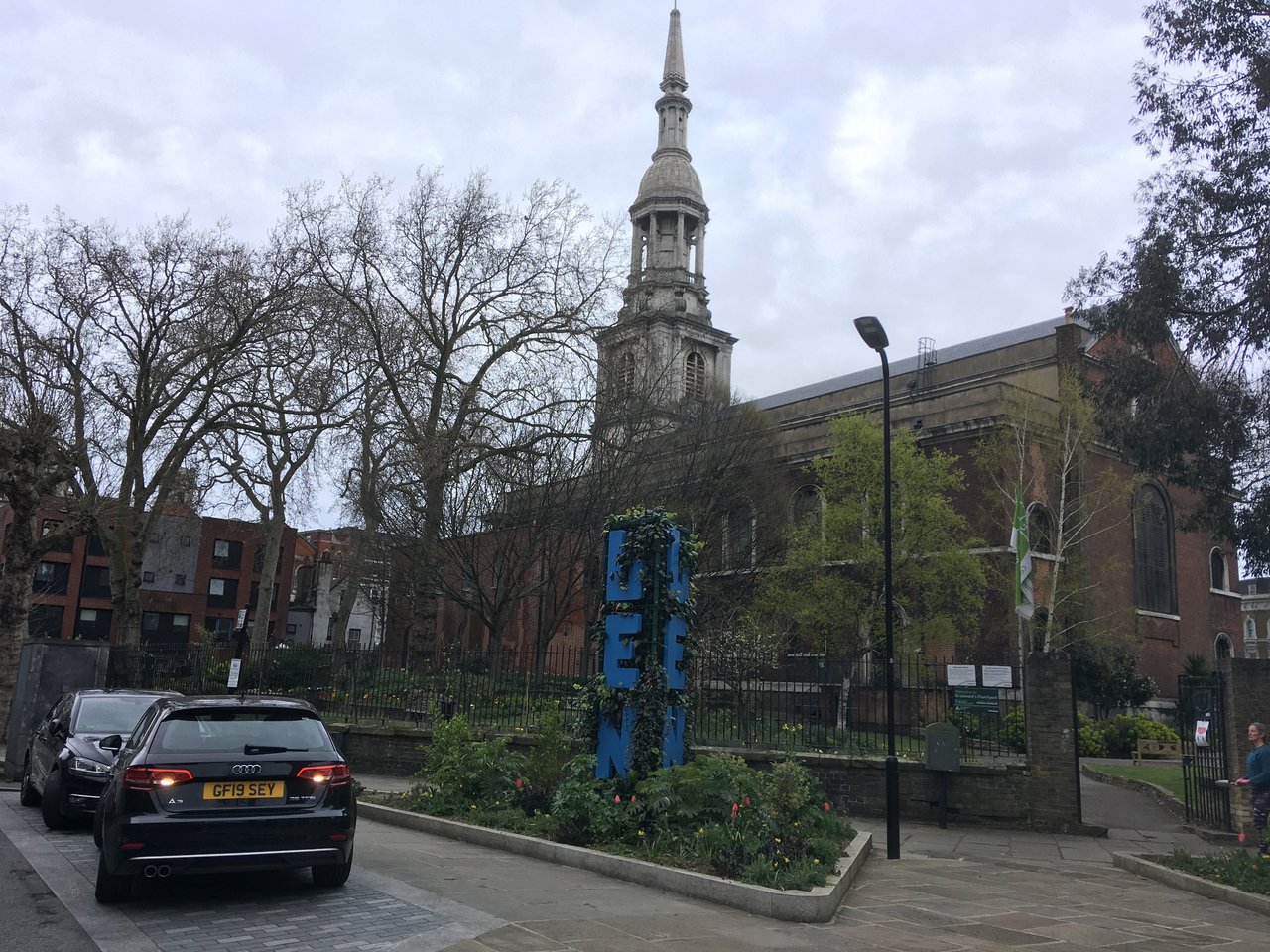
Zones 1 and 2 are prime areas for living in London, and renting there will cost more, but it means your commute to work will be cheaper, and you’ll be closer to everything.
In Zone 3 you’ll get cheaper rent than Zones 1 and 2, and you’ll still be within commuting distance of central London.
A good rule of thumb is if you can’t afford the rent in a certain area go a zone further out.
Living Alone vs House Sharing
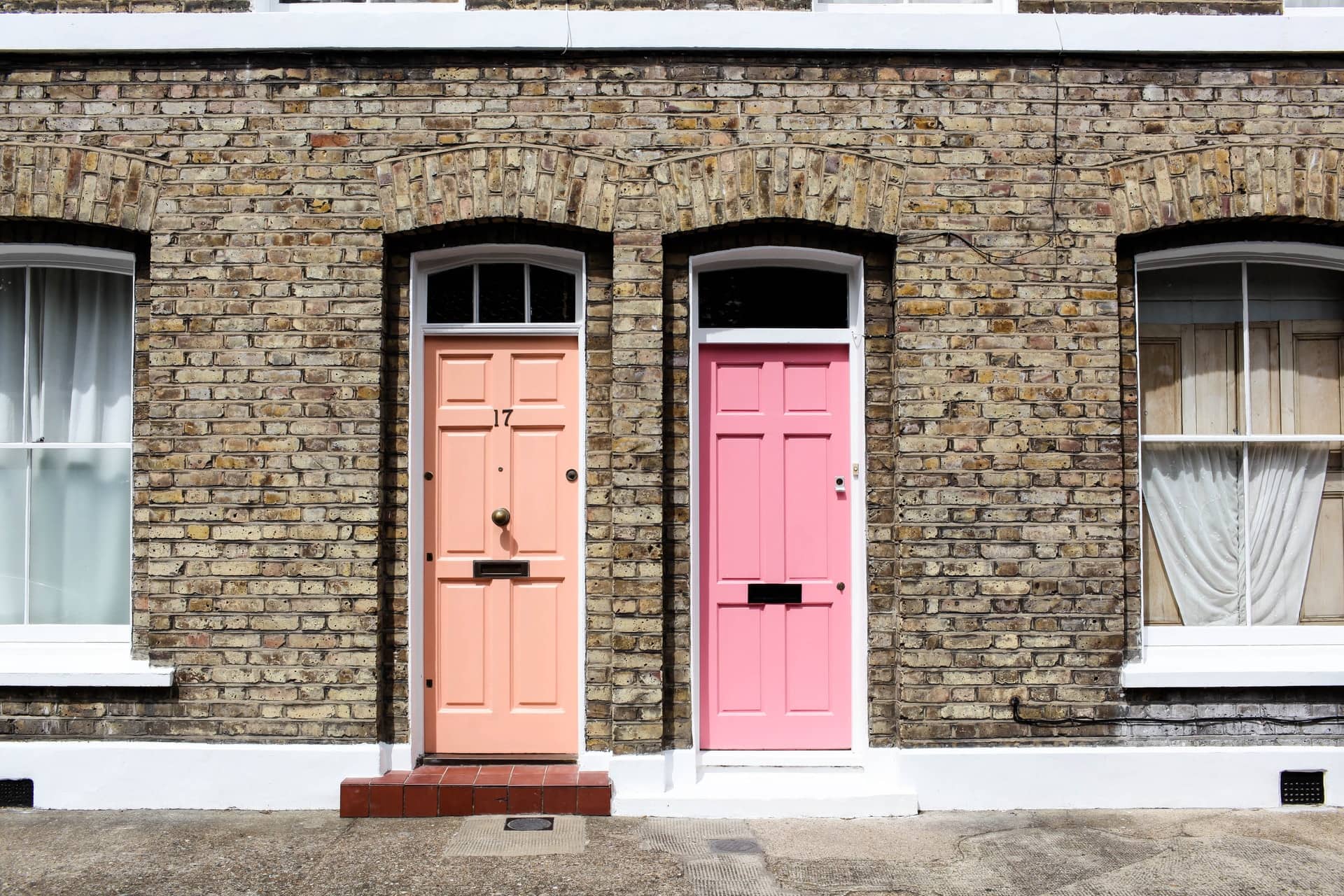
Unless you’ve landed a job with some serious moolah (and if so, go you!), you’re gonna be living with housemates.
The only exception to this is if you have a partner and you both have fairly well-paying jobs. Then, you’ll be able to rent a one-bedroom apartment together in a decent area.
Cost of House Sharing in London
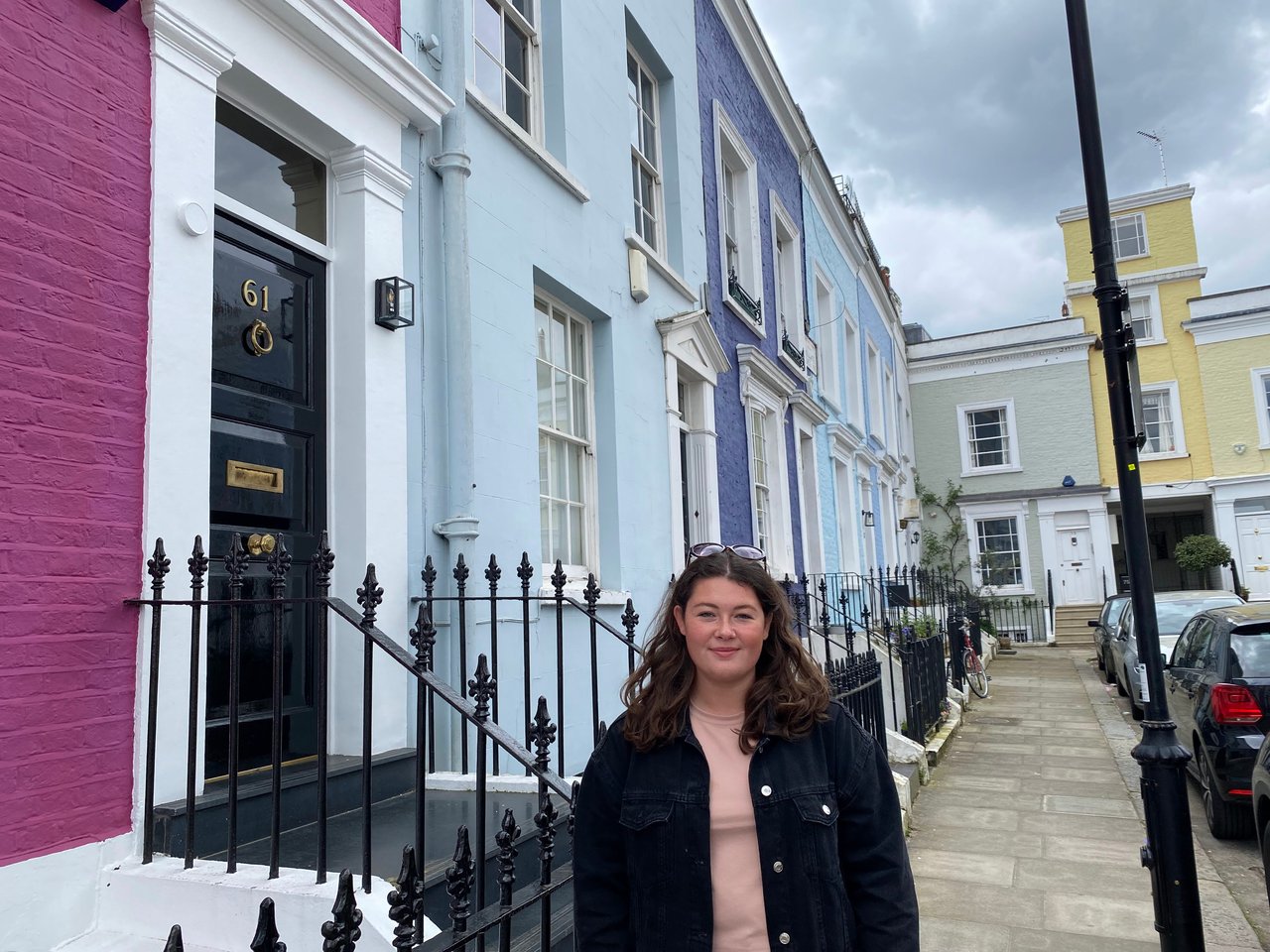
House sharing in London can really vary in cost. It mostly depends on the flat’s condition and whether it boasts a living room – a luxury in London!
Typically, for a double room in a decent 4-person share in Zones 1 to 3, expect to pay at least £800 per month, not including bills.
Of course, there are ways to make this cheaper.
When I first moved to London I stayed in a 3-person house share with no living room for £680 per month. This is SUPER cheap for Zone 2. The thing is though, it was cheap because the property was in really bad shape.
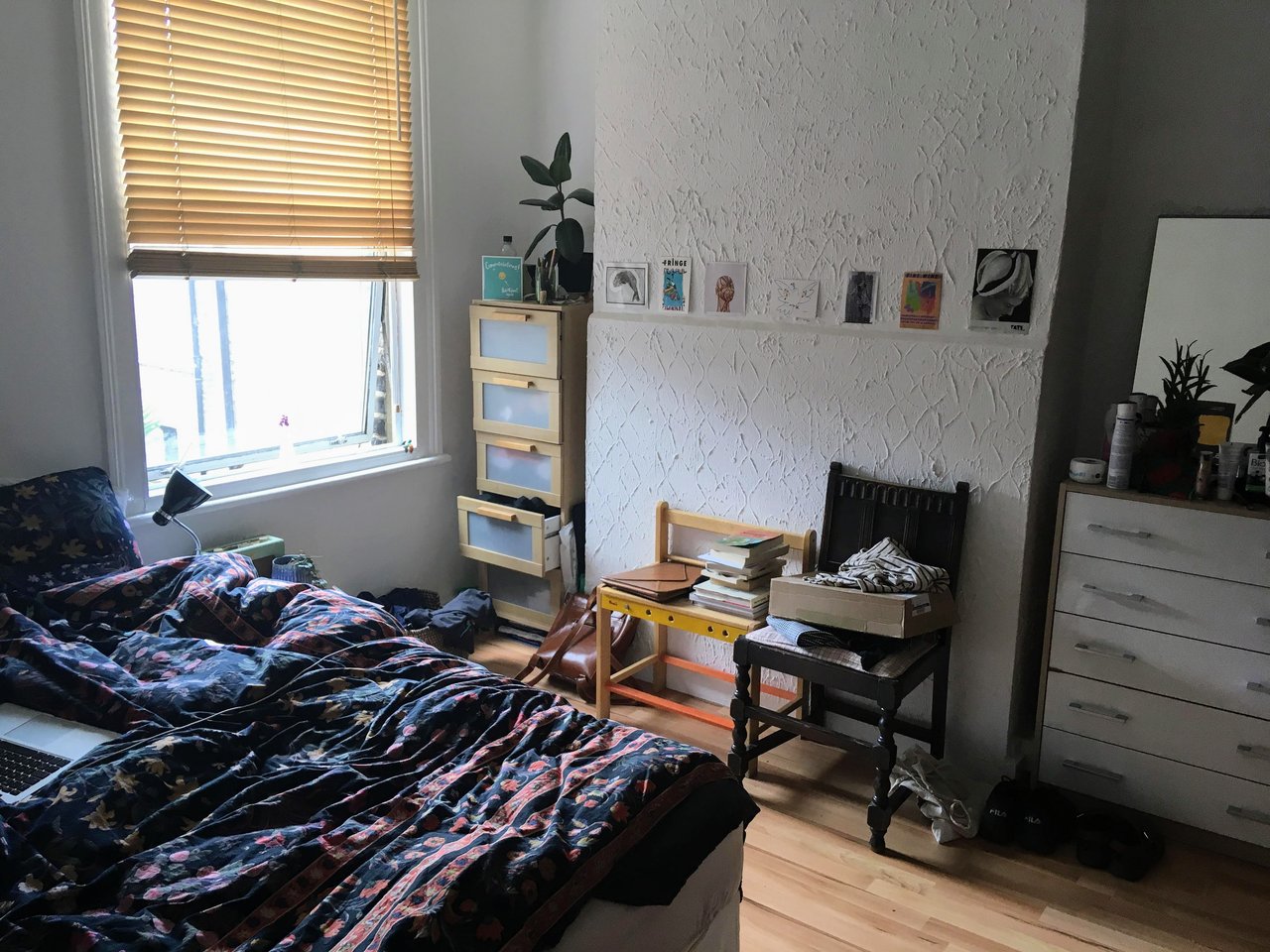
I was living cheaply in London, but I was so cold and miserable in that house that it wasn’t even worth it.
Because the house was so bad at keeping in heat, we spent a TON on energy over winter. Like, we spent £190 on electricity between the three of us in one month…
So, the moral of the story is: if the rent is cheap, check how much the bills are!
How Much Does it Cost to Live Alone in London?
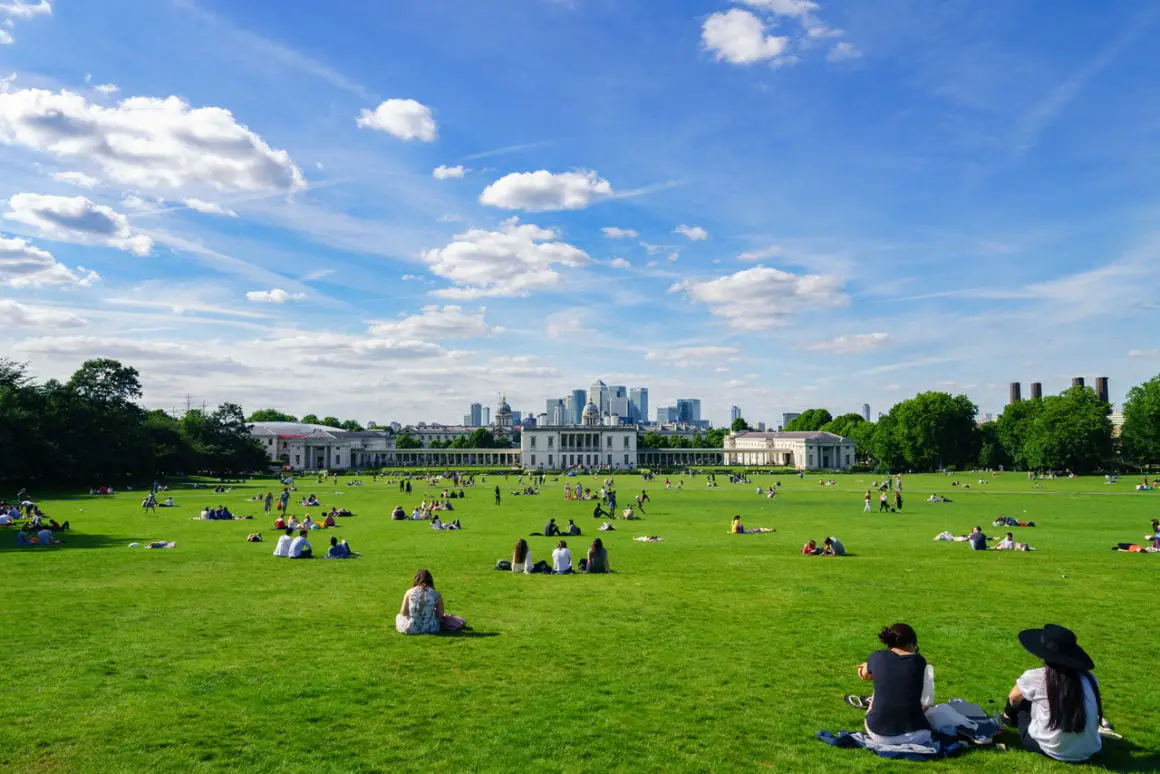
A one-bedroom apartment in decent shape in Zones 1 or 2 (not including bills) will cost around £1,750+ per month in rent. And yes, that’s before bills.
Yikes! In Zone 3 you’re looking at around £1,500+ per month.
For a studio apartment in Zones 1-2 expect rent costs of around £1,300 a month.
Like any big city, London has its fair share of hovels.
If you’re desperate to live alone in central London you’ll probably manage to find a (really, really bleak) studio for around £900 a month, but the living standard would be very poor. It would be much better to just live further out and get a nicer place.
Remember, living solo in London is pricier – sharing your space means you also get to share the bills!
Summary of Average Rent in London:
- Zones 1-2 rent for a 1 bedroom flat: around £1,750 per month
- Zone 3 rent for a 1 bedroom flat: £1,500
- Zones 1-2 rent for a flatshare: around £1,000 per month
- Zone 3 rent for a flatshare: around £800 per month
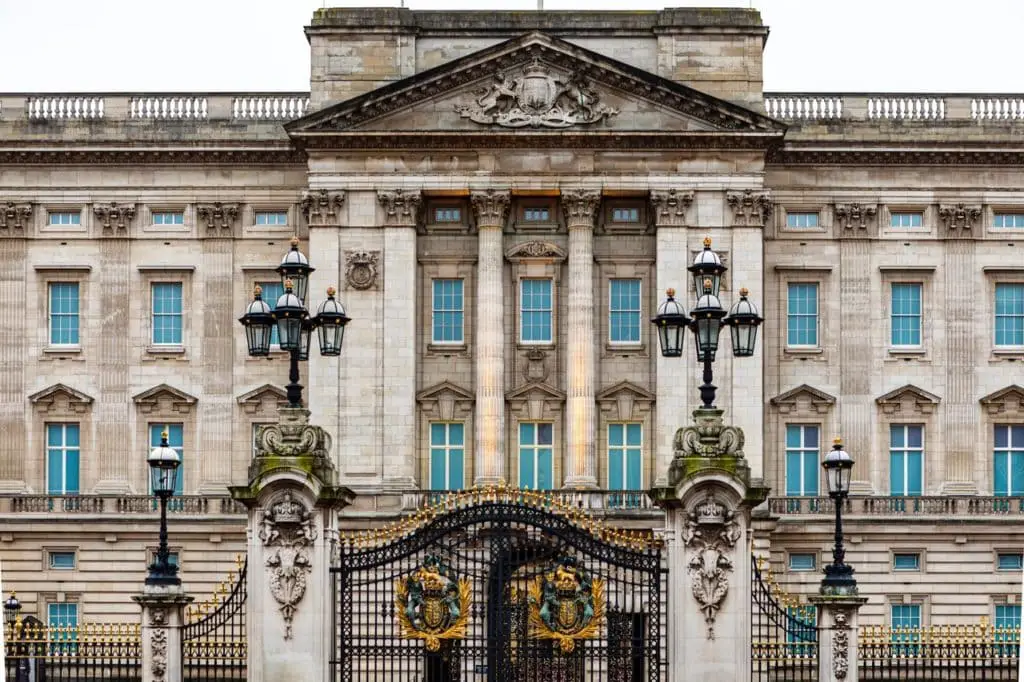
Cost of Bills and Utilities in London
How much are bills in London? Well, how long is a piece of string…
The cost of bills vary a lot, but the average bills per month in London cost around £150-250.
The big variable here is energy costs, and that depends on your usage and whether or not you live alone.
Council Tax
The first of many bills you’ll have to pay in London is council tax, which varies depending on where you live. The easiest way to work out how much your council tax in London will cost is to ask the landlord or current tenants.
You can also check by using the property’s postcode here.
It’s worth remembering that students don’t have to pay council tax, and if you live alone you get a 25% discount.
In some rental agreements your council tax may even be included in your rent so always check!
Me and my housemates paid £29 each per month when we lived in a 3-bed flatshare in Zone 2.
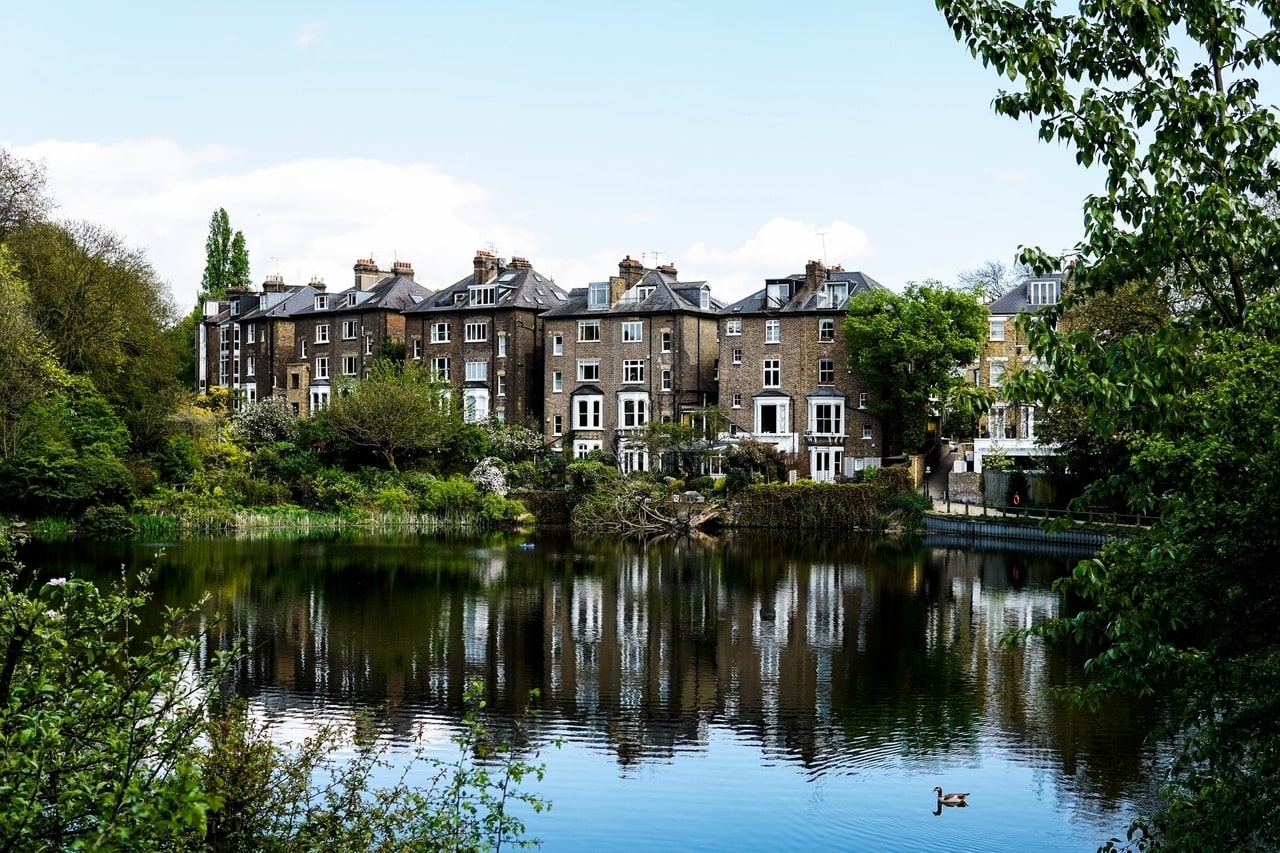
Cost of TV and Internet in London
The cost of Internet in London depends on which provider you choose. It will typically cost between £20 and £40 per month per household.
If you have a TV in the house, you’ll also have to pay a TV licence fee, which costs £159 per year. It’s annoying, but this rule applies to everybody in the UK.
Cost of Utilities in London
Water, gas and electricity all vary a lot depending on how much you use (and how energy efficient your house is).
Some old houses seem to drink electricity like there’s no tomorrow and will cost you a fortune in bills.
If you can, check with your landlord that your bills can be paid online – if there’s a pre-paid meter in the house for your electricity it’s ALWAYS gonna cost more.
As you may know, prices for gas have shot up across Europe recently, with the prices consistently rising throughout 2023 and into 2024.
If you’re renting alone in London, the average monthly energy bill (gas and electricity) is £167.
In terms of water, you’re looking at around £35 per month per household, but obviously this varies depending on how much water you use and what provider you’re with.
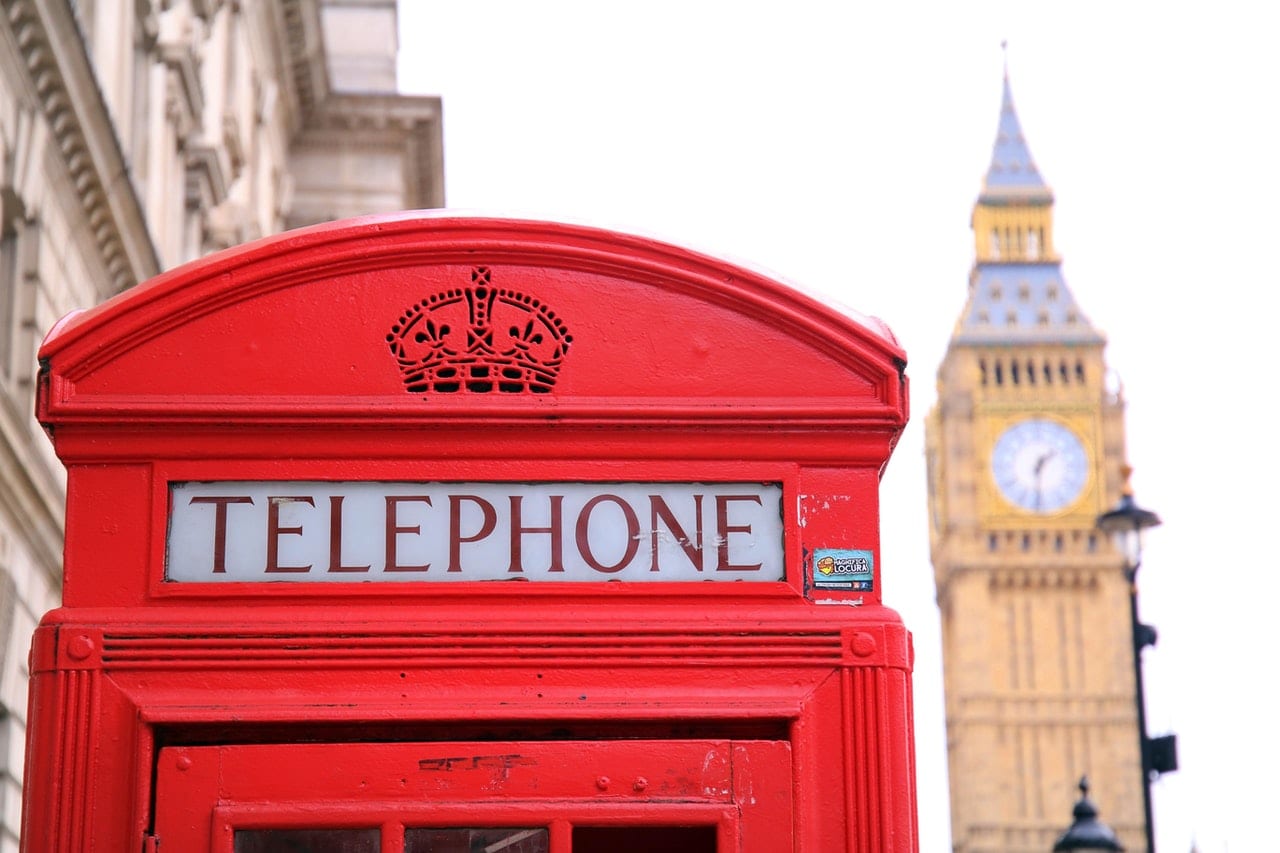
How Much Does Food Cost in London?
A huge relief for me on arrival in London was grocery prices in London are the same as everywhere else in the UK.
For this reason, the price of groceries is very reasonable in London as long as you stick to the big established supermarkets.
I live with my boyfriend, and as we’re currently working from home we get takeaway once a week and cook all of our other meals.
Our grocery bill, which includes loads of fresh fruit, veggies, Quorn, fish, soup, and everything else you could need, normally comes in at £70 a week between us, so £35 each.
If you’re buying groceries for one, this will cost you slightly more.
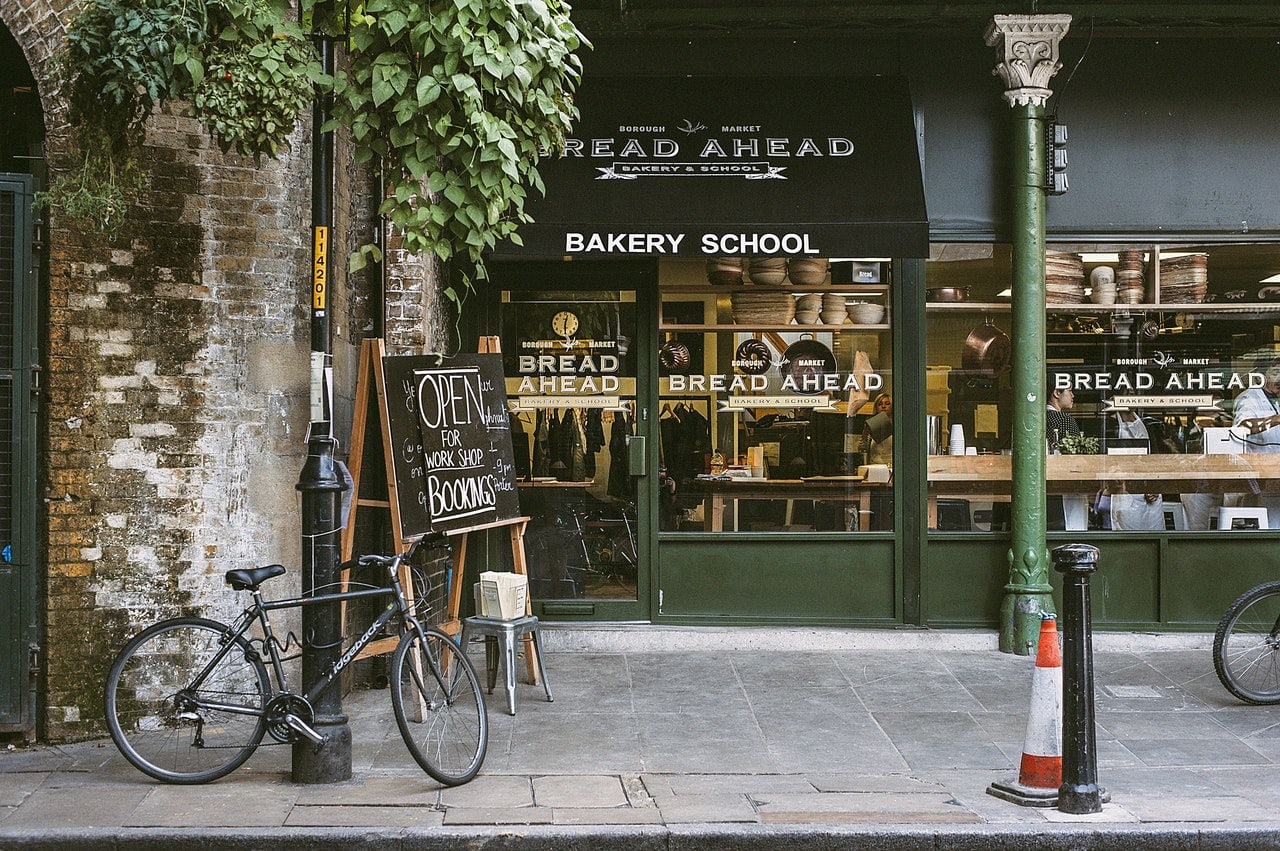
In London, the cheapest grocery stores are Asda and Tesco, and you should shop at these to keep your food expenses as low as you can.
Sainsbury’s and Co-Op are slightly more expensive, and Waitrose and Marks & Spencer are the most expensive (but the best quality).
My estimated average cost of food and groceries in London is £150 per month per person.
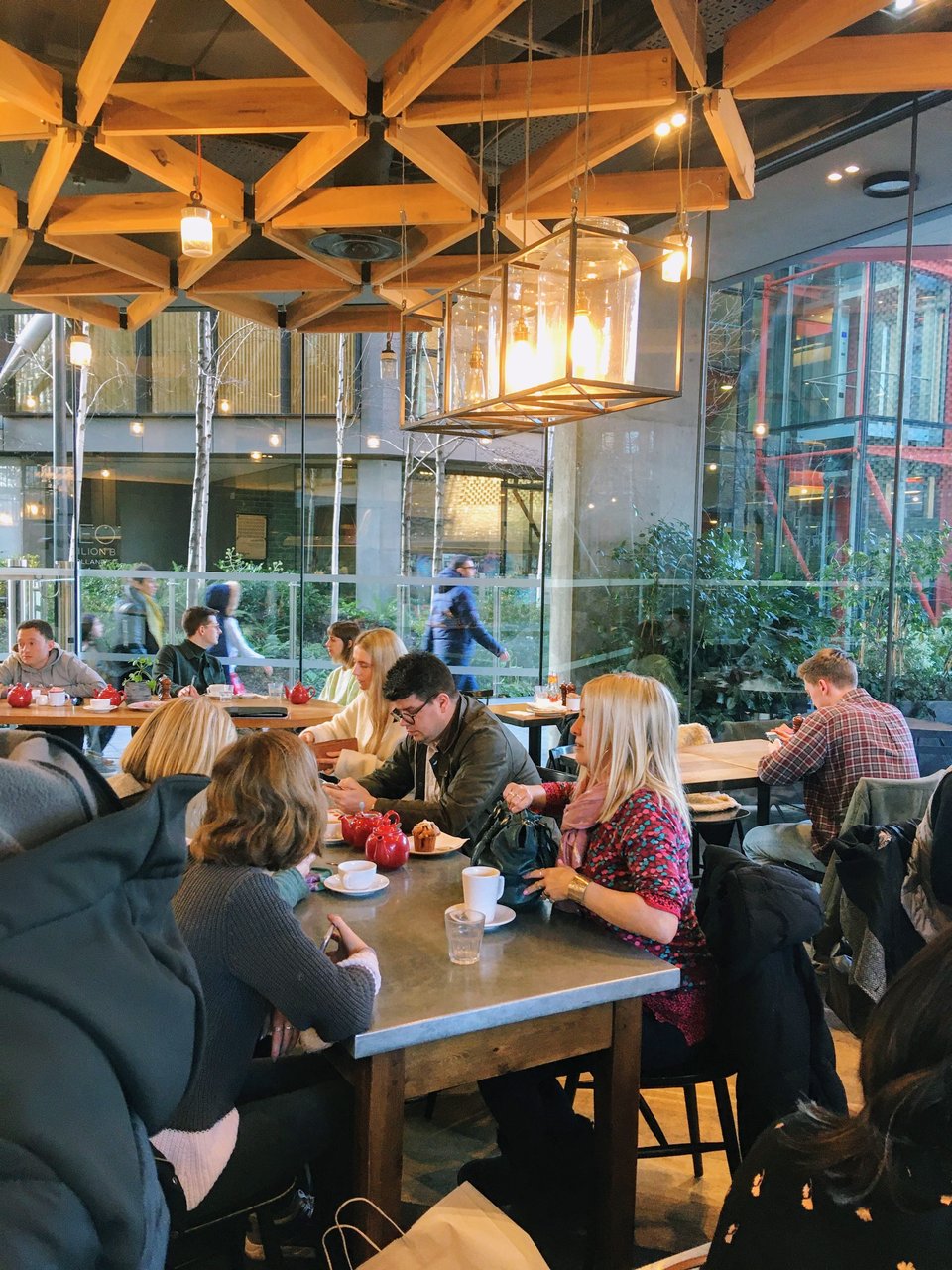
If you buy lunch at work, expect to pay around £5.50+ for a coffee shop sandwich, and I pay around £3.50 for a latte from my favourite coffee shop.
The cost of lunch in London and other daily expenses like coffees can really add up if you don’t bring it to work with you!
Cost of Transport in London
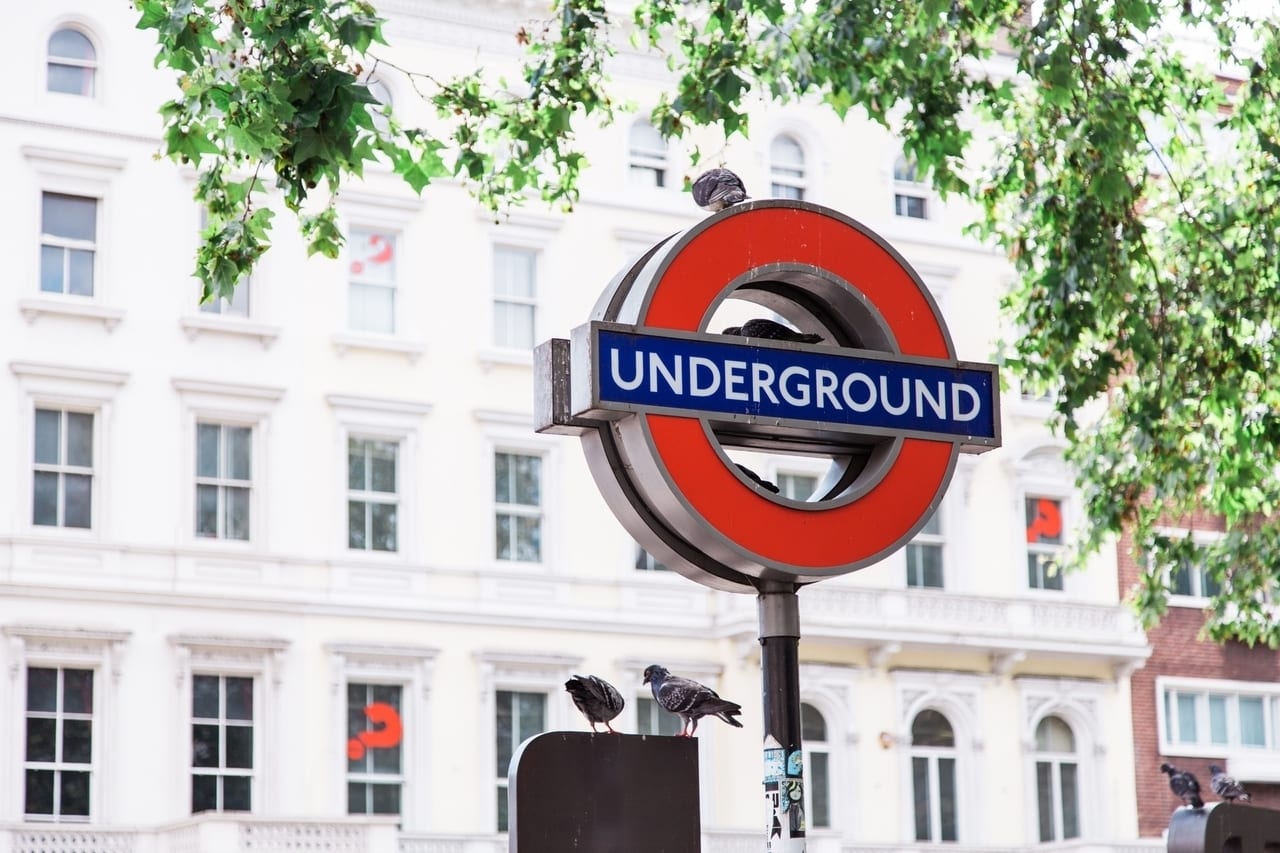
You definitely don’t need a car in London, which saves you money straight away!
Depending on how far away you live from work, you may need a monthly (or annual) travelcard for public transport.
If you don’t need to use public transport for work, you probably won’t need to buy a London travelcard. If you can’t walk to work though, this is an extra substantial expense to add to your monthly budget.
A monthly travelcard covering Zones 1-2 costs £156.30 per month.
For one covering Zones 1-3 you’re looking at £184! Per month!!
Yikes.
You can also buy your travelcards annually, which gets you 2 months free.
If you don’t need to use public transport every day, I recommend budgeting £30-45 per month for this.
Hopping on a bus in London costs you £1.75, and an off-peak single tube journey costs around £3, but it depends on how far you travel.
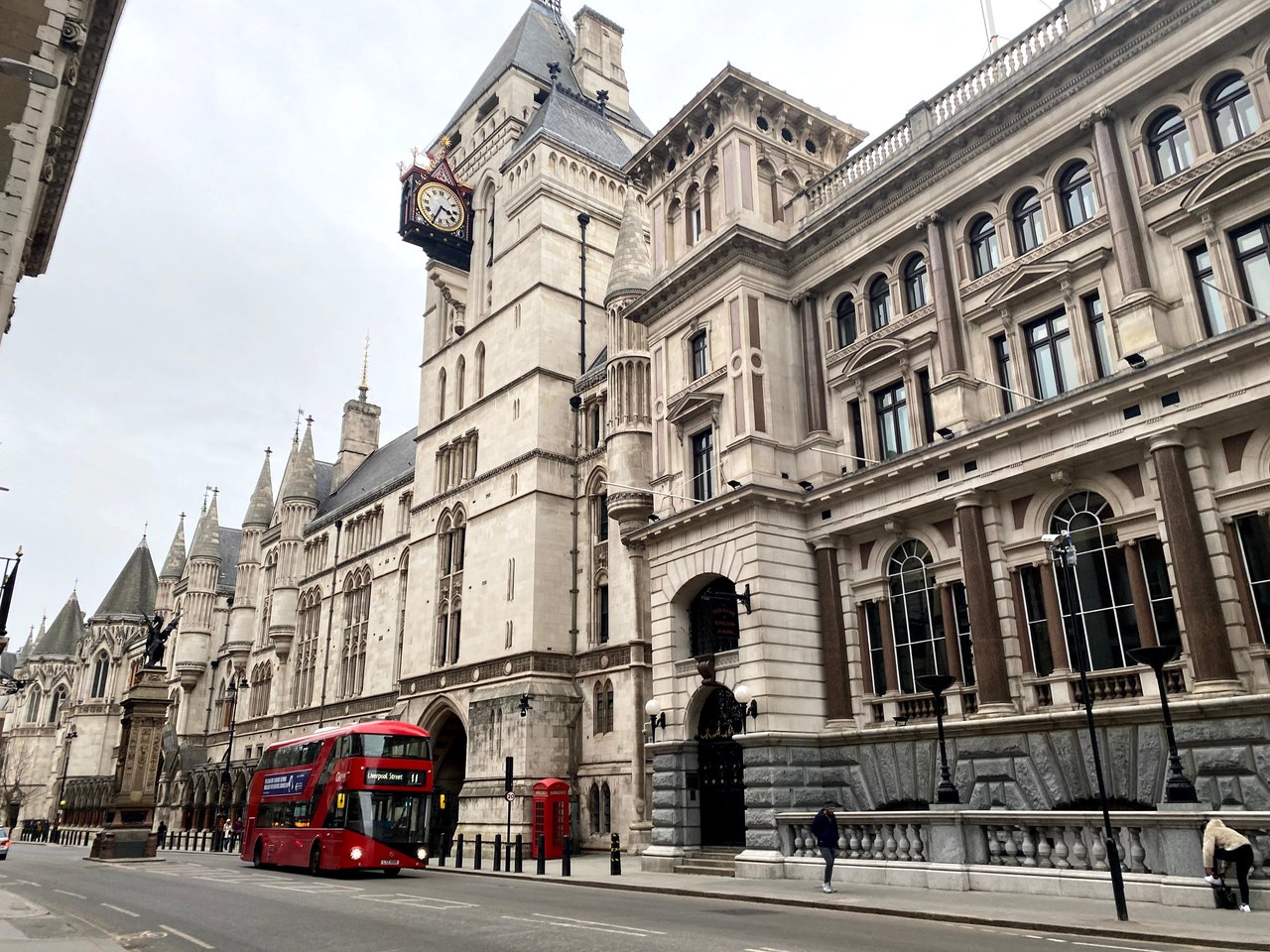
Cost of Entertainment in London
Entertainment in London is another category which can be as cheap or as expensive as you make it. I thought it would be best to talk through how much some common leisure activities in London cost so you can plan your own monthly budget.
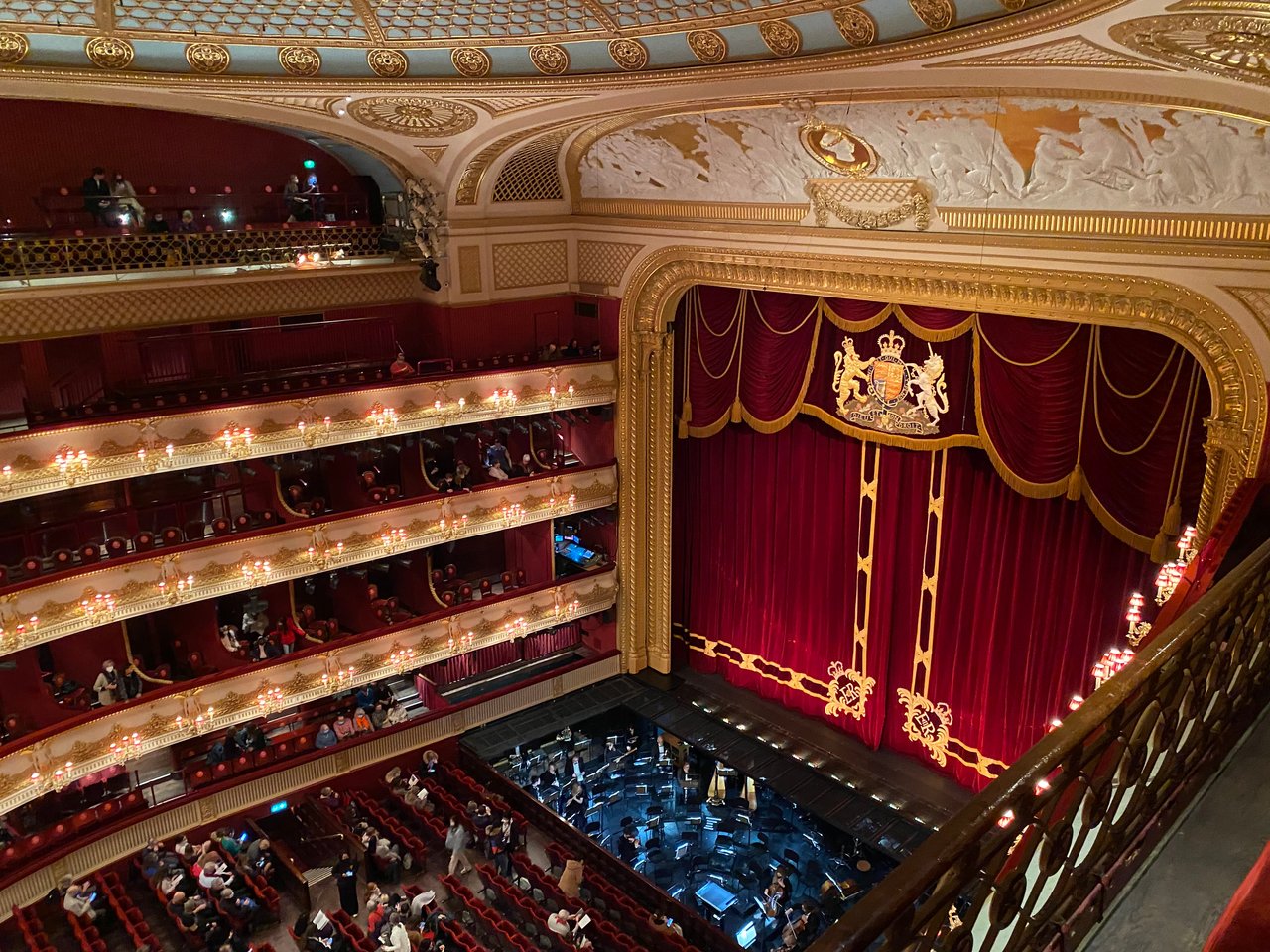
Gyms & Sport
Something I bet you’ll have never heard about is just how expensive gyms are in London!
Probably the cheapest gym chain in London is PureGym, which I have been a member of before. Their branches in central London cost around £35 per month, which is amazing for London!
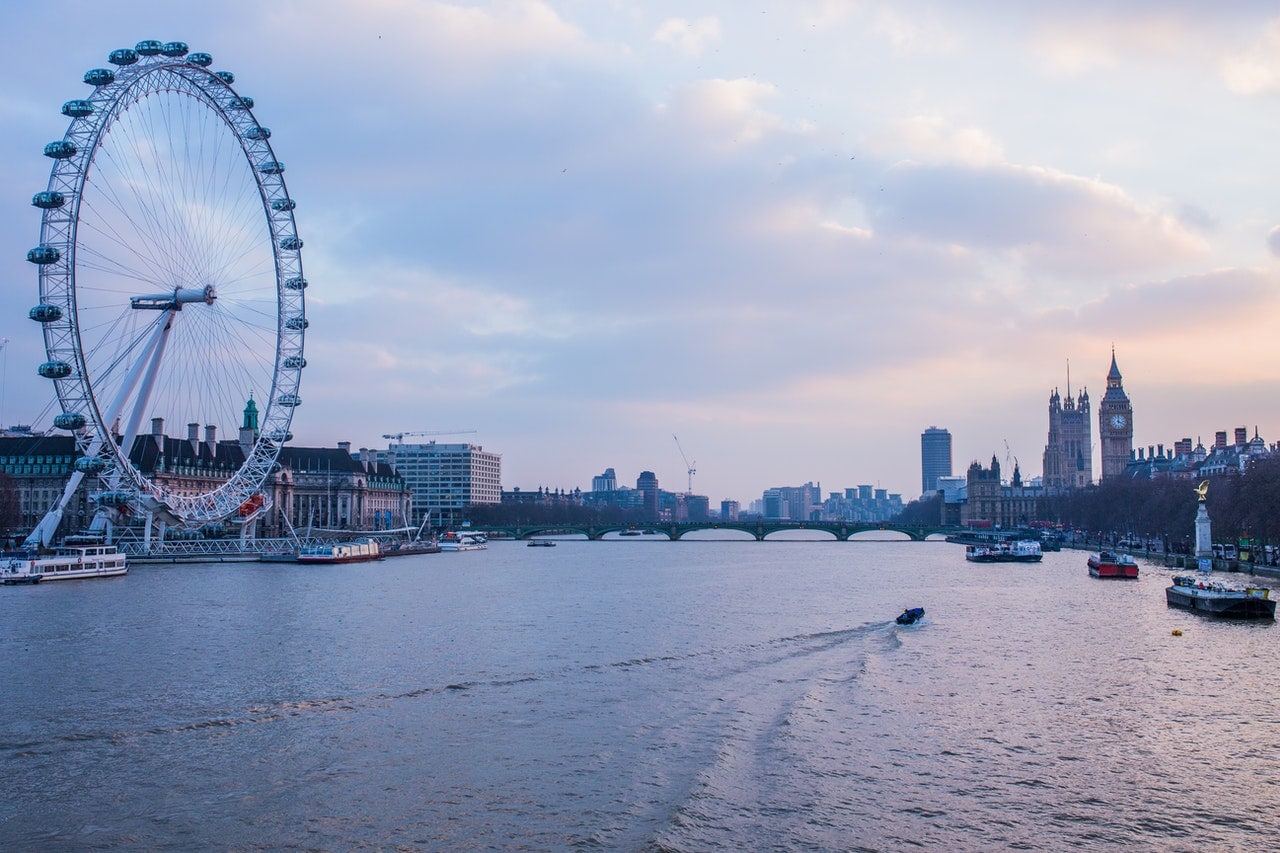
For more of a full-service gym in the city centre, though, you’re gonna cringe when you hear this – memberships start at around £110 per month.
Almost all sports in London are expensive.
Joining an outdoor netball league for 8 weeks will cost you £65. A yoga or dance class will cost at least £15 per session.
I have a workaround, though.
About 4 months into living in London I discovered ClassPass, which changed everything for me!
You pay £69 for 52 credits per month in London (although there are options for less or more credits). With these credits, you can book gym classes, gym time, or a swim session. Classes through ClassPass work out to cost between £5.20 and £10.40!
Cost of Alcohol in London

Drinking and going out in London is expensive. Especially compared to the rest of the UK!
It really does depend on how you do it though. A pint of beer in the City of London or in Zone 1 will cost around £6.70, but head out to Peckham and you’ll get a pint of beer for £4.75.
It’s all about going out in cheaper areas of London to save money.
If you drink wine and cocktails it’ll cost much more than drinking beer (£12 for a cocktail, on average).

In the supermarket, you can get a pack of four beers for around £4, and a decent bottle of red wine will set you back around £7.
Dining Out & Takeaway

Eating out in London is also pricey, but you just have to do it because it’s one of the best things about living in London!
On average, Rob and I spend £40 each for dinner at a restaurant with drinks, with London brunches working out more like £18 per person for a coffee and main.
There’s a huge range of takeaway food options in London, and you can eat food from anywhere in the world! It’s always cheaper than eating at a restaurant.
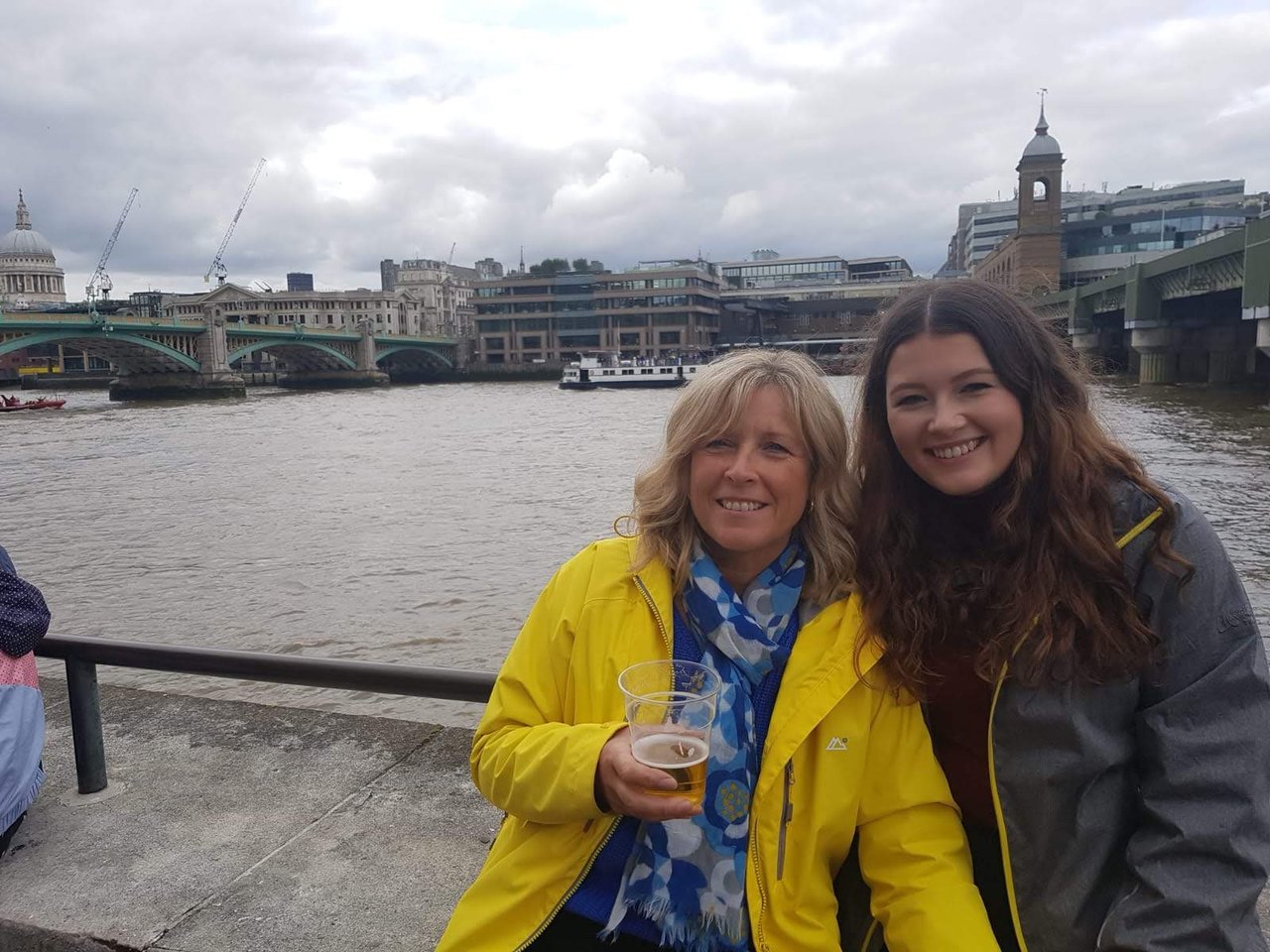
If you’re ordering for one, just like anywhere else in the world, takeaway will cost more since you’ll have to front the whole of the delivery and service fees yourself. For this reason, the average cost of a takeaway for one in London will cost around £15-20.
If you’re ordering for two it’ll be slightly cheaper per person.
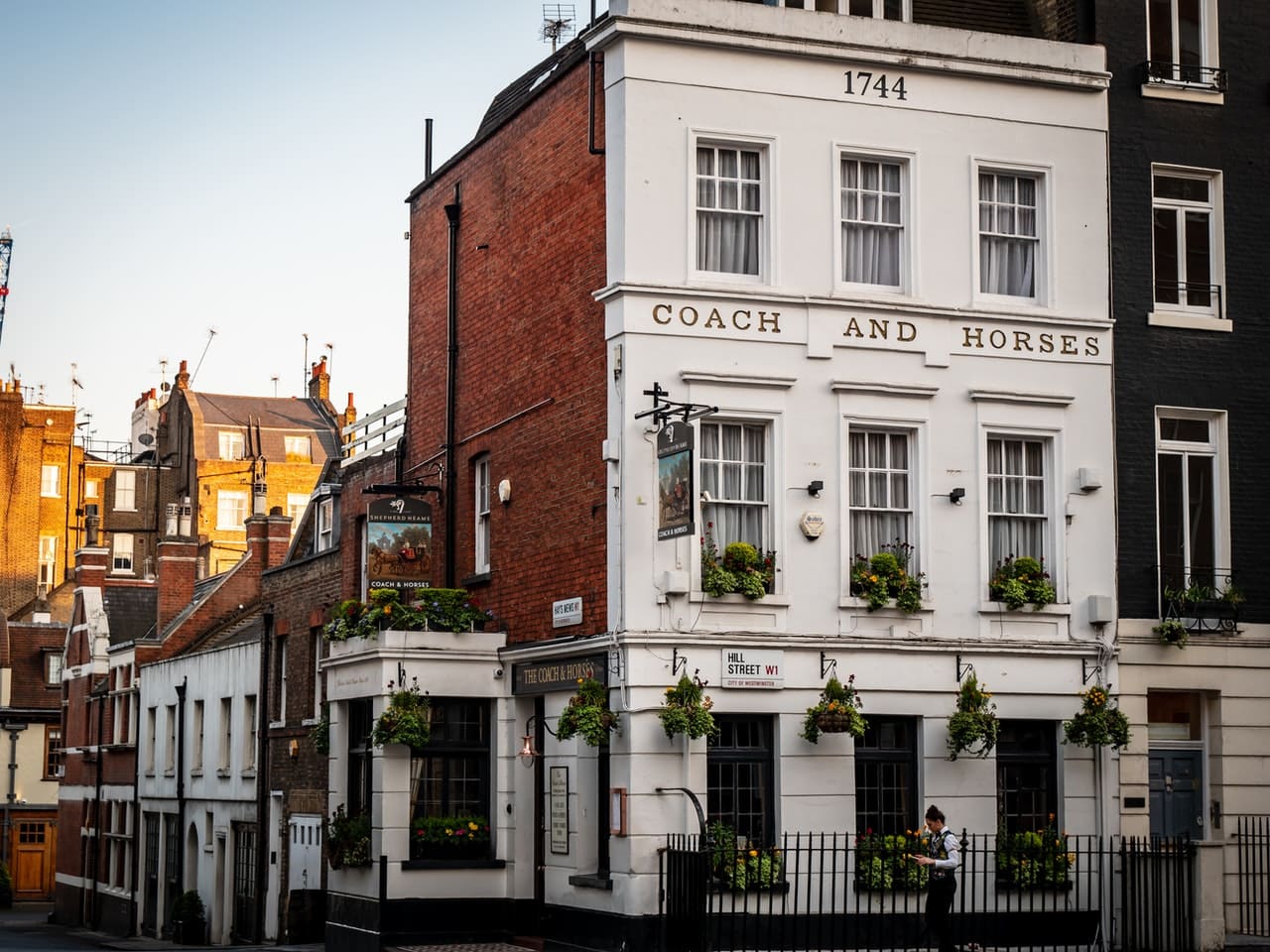
Cost of Sightseeing in London
It’s super easy to forget to go sightseeing when you live in London. I know that life can get in the way, but it’s really important to.
You’ve got to make the most of living in one of the best cities in the world!
Luckily, there are soooo many free attractions in London so this won’t massively impact the cost of your life in London.

From the Big Ben and Buckingham Palace, to the Natural History Museum and Hyde Park, you can visit most of London’s top landmarks for free!
If you want to see certain iconic attractions, such as the Tower of London and Hampton Court Palace, you will have to pay.
For a mixture of free and paid attractions, I recommend budgeting £20 a month for touristy sightseeing.
The Total Cost of Living in London per Month
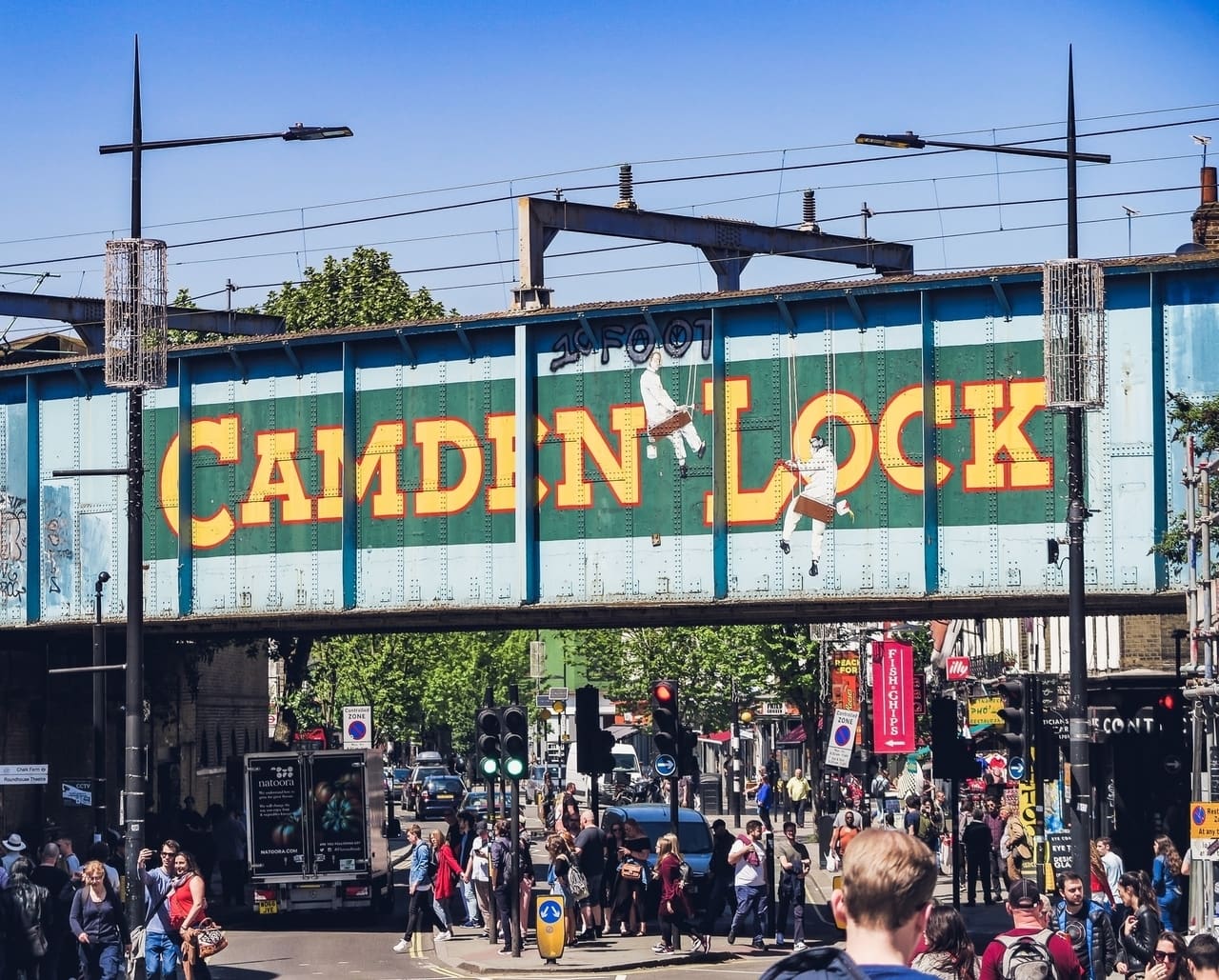
Phew, that was a lot of information!
I’ve pulled together the rough averages into the table below to make things easier, and then underneath that I’ve set out a more comprehensive list of the average living expenses in London mentioned in this post.
I recommend adding an extra £150 or so per month to whatever you think you need to cover things like needing a new pair of shoes for work, extra shampoo, and so on.
So – how expensive is London living? How much do you need to live in London per month? Here’s how much living in a one bedroom apartment will cost, on average. If you’re living with a partner, you can split a lot of these costs between you!
| Expense | Average Monthly Cost |
|---|---|
| Rent (1 Bedroom apartment) | £1800 |
| Internet | £35 |
| Energy | £167 |
| TV License | £13.12 |
| Water | £35 |
| Groceries | £150 |
| Transportation | £184 |
| Dining out/Takeaway | £120 |
| Gym/Fitness | £80 |
| Going Out/Activities | £60 |
| Sightseeing | £20 |
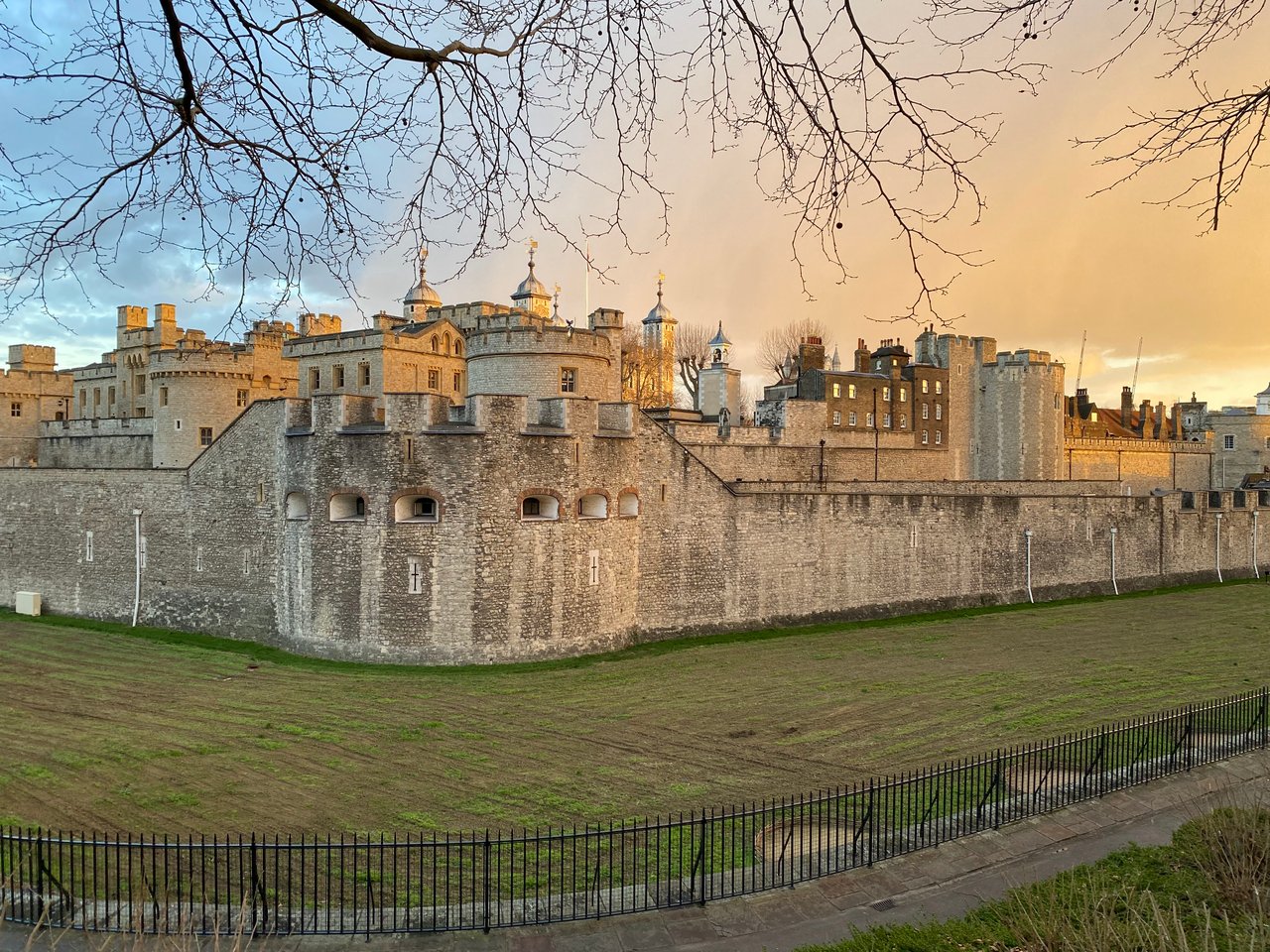
How Much Do I Spend Living in London?
On average, I spend around £2,000 each month. This covers a comfortable one-bedroom apartment with my boyfriend, meals out, concerts and drinks, doing plenty of sport, and checking out some tourist attractions.
Things to Consider Before You Move to London
If you already have a job lined up before you move to London, this will help massively.
Your salary will give you a clear idea of how much you can afford to spend each month. This makes creating your monthly living in London budget so much easier!
If you’re moving to London without a job, you’ll need some savings to tide you over. To be on the safe side, I recommend finding the lowest realistic salary someone in your industry in London would get paid and use that as a starting point for planning your budget.
How Much Should I Have in Savings Before Moving to London?
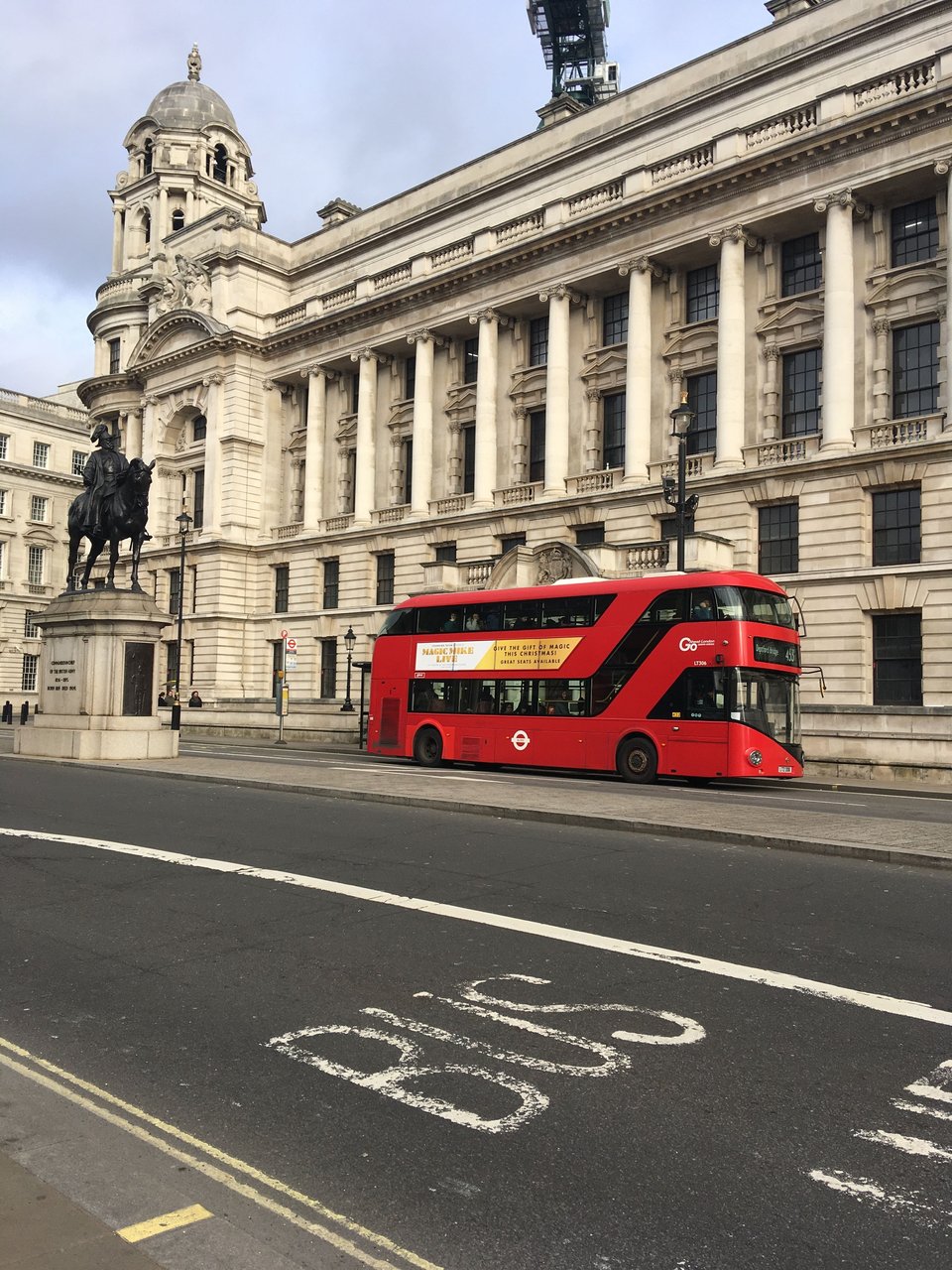
If you’re arriving in London without a job, you should arrive with 6 months’ rent saved up as a bare minimum.
This will allow you to pay a deposit for a flat (1 months’ rent), cover 3 months of rent whilst you find a job, and use the amount equal to two months’ rent to cover your London living cost as you search.
How Much Do You Need to Earn to Live in London?
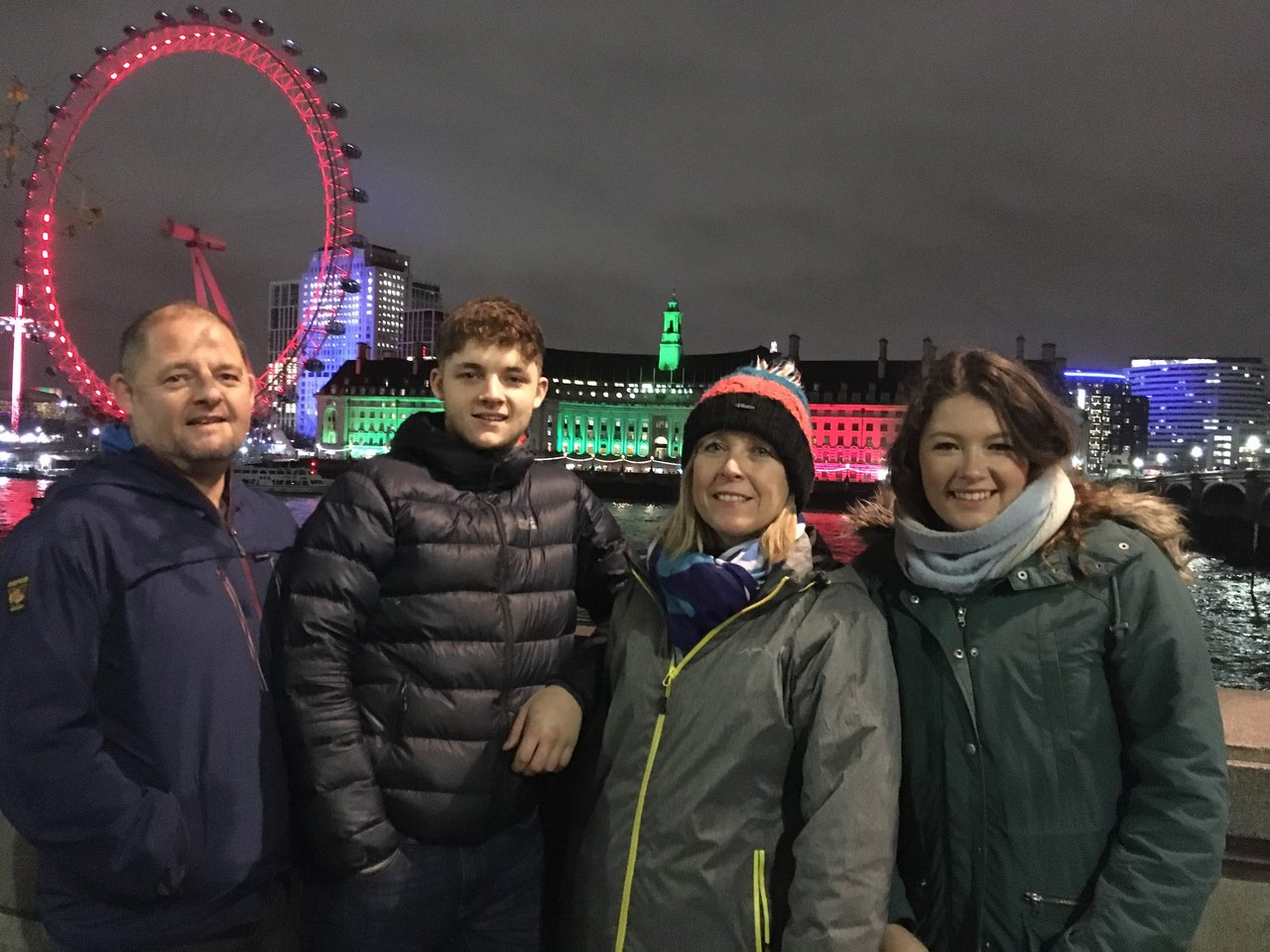
After so much talk about the cost of life in London, it’s only natural to wonder how much salary you’ll need to afford to live in London.
In my personal experience, and from speaking to my friends, I don’t think it’s worth living in London unless you’re earning £30k per year, minimum. Of course, LOADS of people live in this city with lower salaries and make it work, but you’ll have to make a lot of sacrifices.
Now, if you’re aiming for a bit more comfort (and who isn’t?), you’ll be looking at a salary of £40k or more. However, you’ll still need to share a house on this salary.
A single person living alone in London will need a salary of around £60k+ per year, but the more you have, the nicer the place you can afford.
If you’re one of my non-UK readers (hello!) it’s worth bearing in mind that your employer will deduct tax and national insurance from your salary before it lands in your account. This can be anything from 20-45%, depending on what you earn.

How Do People Afford to Live in London?
Good question. Like I said, many people can afford to live in London even on salaries far below what I recommend.
So how do people afford to live in London on low salaries?
Usually, it’s a combination of these factors:
- They live in a house their family bought years ago, when housing in London was more affordable;
- They live somewhere cheaper and further out of London, like Croydon, and commute;
- They’re students, so they rely on student loans;
- They’re very, very careful financially and have perfected the art of living frugally;
- They use their overdraft or credit cards to afford to live in London each month (living in your overdraft is unfortunately very common in London);
- They get financial help from family;
- They work multiple jobs;
- They live in poor quality accommodation shared with lots of others (warehouses are very popular for this); or
- They were very, very lucky and found an amazing landlord who doesn’t rinse them down to their last penny in rent. Rare!
Obviously these aren’t the only ways people can afford to live in London on a low salary, but they’re some of the most common. If you’re wondering “how can I afford to live in London?” the answer is usually: find a job with a good salary.
That’s easier said than done, though.
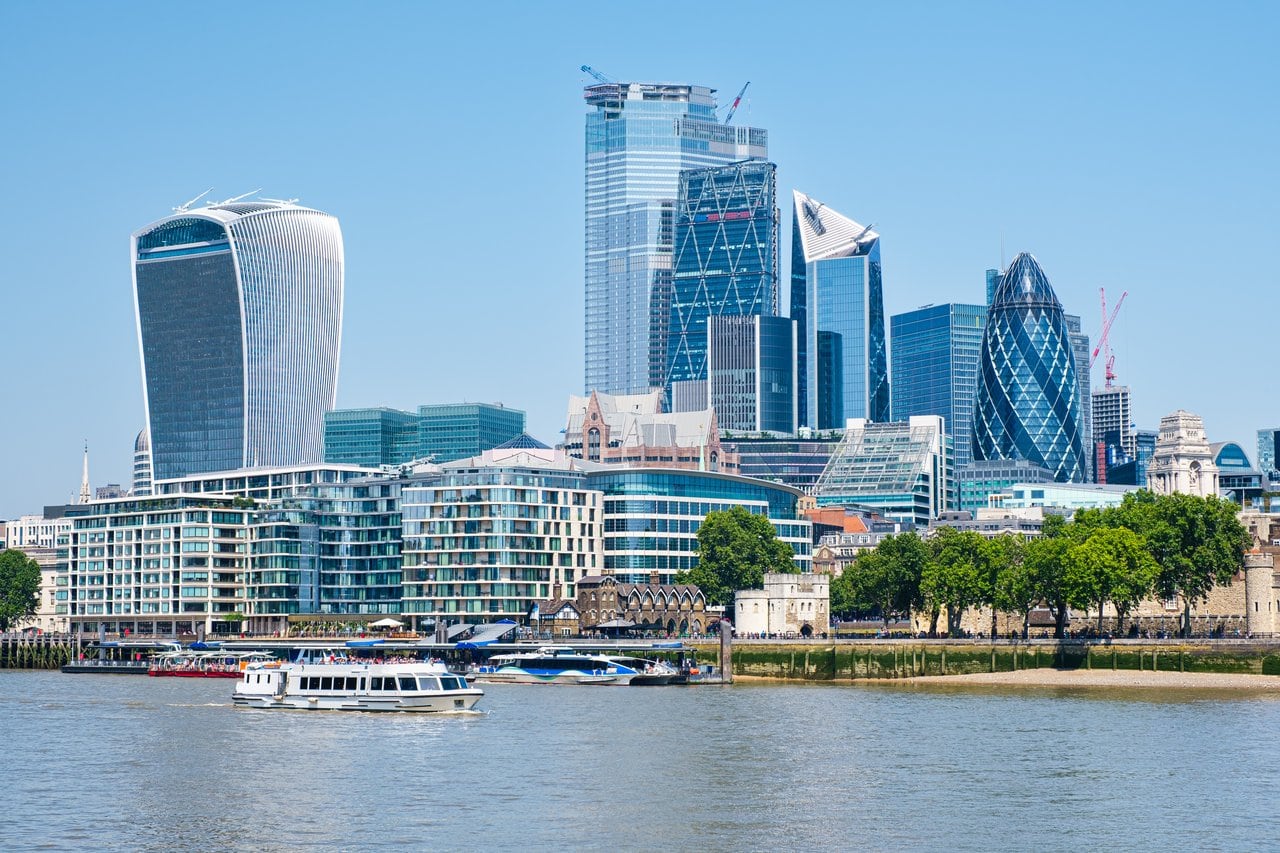
I hope this post helped you get a better understanding of the London cost of living.
I absolutely adore living here and it’s so exciting that you’re considering the move, too!
Feel free to drop any questions you have in the comments!
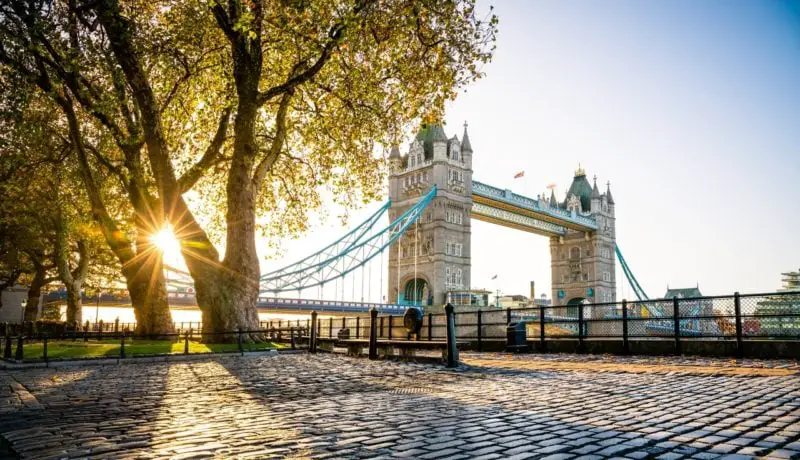
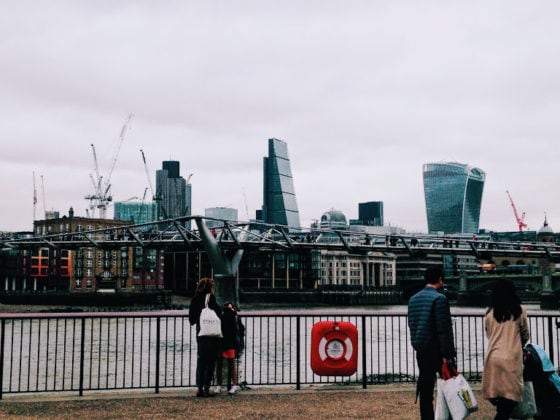

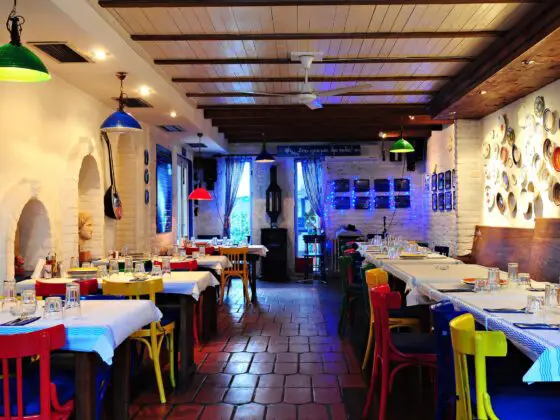



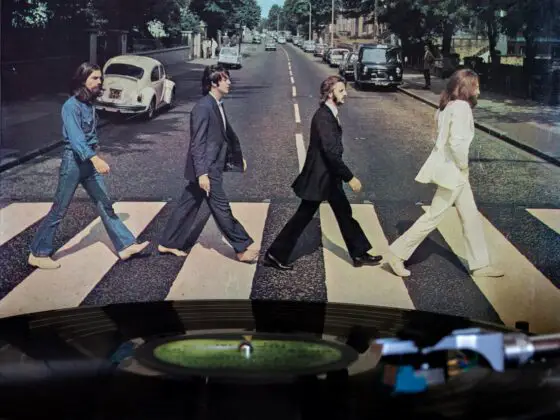

8 comments
Hi Ella,
I’m planning to move in for a new job in London from The States–where do you think is the farthest out from the most central zones that I can still use the train (underground or overground) to commute into the more central zones? For example, it is reasonable to think that I could use the train to get from Crystal Palace or Sutton into the central zones each day, or would that be a hellish commute and/or impossible?
Hi Kat, people do all sorts of crazy commutes into London thanks to the higher salaries there. So Sutton or Crystal Palace into central London wouldn’t be the craziest or longest I’ve heard by a long shot. I really urge you to think about the effect a 90+ minute commute on each side of your day will have on your lifestyle though. If you’re working an office job in London, chances are you’re working well beyond the traditional 9-5 as it is. Adding a long commute on top could make living in London really unenjoyable for you. I’d try your best to find somewhere with a shorter commute if possible!
Hi, thanks for the really comprehensive guide on the cost of living in London. I’ve been looking at some jobs which really suit my current profile but was worried about whether the salary would be enough since nearly all the vacancies are based in London, so this post has put me at ease to a large extent.
One small question, though; I noticed that you haven’t mentioned anything about income taxes, or is it included in the “council tax” that has to be paid?
Thanks in advance!
You’re very welcome, and sorry for only just getting to your message, it slipped under the radar! Here in the U.K. your income tax (if you have an employer) will be taken out of your paycheck before you’re paid, so it’s not really something you need to consider when working out the cost of living in London month to month. You can use this tool to work out what your take home pay will be after tax – https://www.thesalarycalculator.co.uk/salary.php
Hi Ella
This is so helpful thank you! I’m interviewing for a job in London next week, and you’ve put my mind at rest that I might be able to afford to live in London.
Best wishes
Robin
So glad to have helped Robin, best of luck with the job hunt and please let me know if you have any questions further down the line 🙂
What about an American couple living in London for a month. How does one do that? Is it easy? How are Americans seen in the UK? We would be living off out retirement incomes, which is actually pretty good! Any advice would be great!
Thanks!
Hi Jenny – there are tonnes of Americans in London, so you definitely won’t stand out and I’m sure it’ll be easy to make friends. If you’re living in London for a month your best bet will be to find an apartment on something like Airbnb, Booking.com or VRBO. They’ll be far more expensive than longer-term rentals, but you wouldn’t typically be able to sign a month-long rental agreement with a traditional landlord without being a UK resident I don’t think.
Good luck!
Comments are closed.